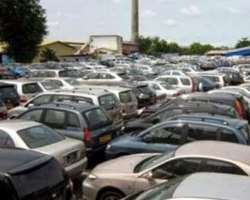New automotive policy and the resistance to change - THE CITIZEN

Government has made it clear that it has not increased the tariff on imported cars by 70% and that the present duty on imported vehicles isn't going to change until we are able to build sufficient capacity for locally assembled vehicles. Government has also given assurances that the implementation of the new automotive policy isn't going to lead to increase in vehicle prices. It has also promised that various financing arrangements are on the way to make locally made vehicles affordable to Nigerians on credit terms, as happens in even wealthier nations.
So, what exactly is the present agitation over tariff on imported vehicles all about? The present disquiet in the industry therefore has no basis since the contention is the duty on imported vehicles, which government has made its position very clear. It is apparent that this is a part of the resistance to the policy change by some operators in the industry that seem to consider their business interests above the general good of society.
We believe it is wrong on the part of some operators in the auto industry to project government that is well indented as far as the new automotive policy is concerned as uncaring for the plight of its citizens. We appreciate that government has shown a great understanding of the short-term challenges the policy change will involve and has taken adequate steps to address such.
This is by way of retaining the existing tariff structure on used vehicles until we are able to install adequate capacity to roll out sufficient Nigerian made vehicles. We therefore consider it mischievous to give the impression that the contrary is the case.
While the internal auto assembly capacity is being developed, government is already encouraging the service industry to develop various credit schemes that would prop up the consumer market and therefore facilitate quick turnover for local vehicle assembly plants. These good gestures of government need to be appreciated for their short-term benefits and extolled for their profound vision for the future of our nation.
Apart from the steps taken to deal with the short-term challenges of the change in policy, the long-term benefits of job creation, foreign exchange conservation and changing our status as a dumping ground for other nations are worth any sacrifices that Nigerians could make at this time. The national objectives at stake for the good of all of us should not in any way be compromised for the private interests of a few businessmen.
Job creation for our teaming youth is a national priority at the moment and the auto industry in Nigeria is large enough to make a considerable impact in reducing unemployment. Youth unemployment has been identified as a major factor in our present security challenges and therefore government effort towards creating jobs for our people needs the support of all.
Let the auto industry operators, who are out to employ every little excuse to hit back at the new automotive policy, have a change of heart. The policy has received tremendous support from both within and outside Nigeria and no amount of blackmail by selfish businessmen should discourage government and draw the hands of the clock back.
It is a strategic step on the part of the government to reduce pressure in the foreign exchange market by seeking to make a change from massive vehicle importation to local vehicle assembling. The promise by the new governor of the Central Bank of Nigeria to reduce interest rates cannot succeed without first curbing the excessive demand pressure in the foreign exchange market.
A low interest rate regime is critically needed for Nigeria to emerge as a producing nation. Low interest rates also constitute the central plank of President Jonathan's Nigeria Industrial Revolution Programme. We can begin to see how the various key policy objectives of government are connected and working towards a central purpose. Government and all well-meaning people of Nigeria should not let the parochial interests of a few businessmen derail the transformation plan of government.
Nigeria has won the label of a 'tokunbo' nation for too long and we need to look inwards in trying to change this inglorious status. With the ongoing development of appropriate financing institutions and arrangements, we are earnestly looking forward to a situation where Nigerians will have the opportunity to pay a fraction of the cost of a new made in Nigeria car and pay off the balance by installments. This is the dreamland of government for our nation and we believe that every patriotic Nigerian who understands the unfolding policy objectives will rather put his hands on deck.
